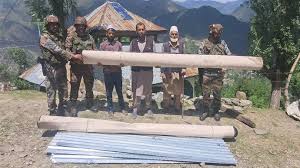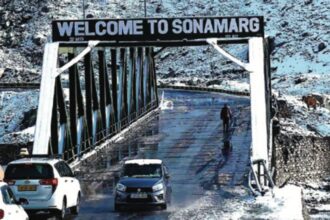On May 17, 2025 – In a robust diplomatic move following the April 22 Pahalgam terror attack and the subsequent Operation Sindoor, the Ministry of Parliamentary Affairs announced on Saturday that India will dispatch seven all-party delegations to key countries around the world. These delegations aim to present India’s firm stance of zero tolerance against terrorism, counter Pakistan’s narrative on Kashmir and garner international support to isolate Pakistan diplomatically.
Unified National Front Against Terrorism
The delegations will visit members of the United Nations Security Council (UNSC) and other strategic partners, including the United States, the United Kingdom, the United Arab Emirates, Japan, South Africa, and several others. Each delegation will comprise Members of Parliament (MPs) from both the ruling National Democratic Alliance (NDA) and the opposition INDIA alliance, accompanied by senior diplomats.
This rare bipartisan initiative reflects India’s unified national consensus to combat terrorism in all its forms and manifestations. Union Parliamentary Affairs Minister Kiren Rijiju emphasized this unity, stating, “In moments that matter most, Bharat stands united. Seven all-party delegations will soon visit key partner nations, carrying our collective message of zero tolerance towards terrorism. A strong expression of national unity that rises above politics and transcends differences.”
Background: Operation Sindoor and the Pahalgam Attack
The diplomatic outreach follows Operation Sindoor, launched on May 7, 2025, in direct retaliation to the Pahalgam terror attack, which was orchestrated by The Resistance Front (TRF), a front for the Lashkar-e-Taiba terrorist group. Operation Sindoor involved 24 precision strikes on nine terror camps across Pakistan and Pakistan-occupied Kashmir (PoK), resulting in the elimination of over 100 terrorists, including individuals linked to previous high-profile attacks such as the IC 814 hijacking and the Pulwama attack.
The delegations will brief foreign governments and international organizations on these developments, highlighting India’s proactive and resolute approach to counterterrorism. A key diplomatic objective is to push for the designation of TRF as a terrorist organization by the United Nations, thereby enabling global sanctions and travel bans against its members.
Prominent Leaders Leading the Delegations
The seven delegations will be led by prominent MPs from across the political spectrum, ensuring broad representation and credibility:
- Shashi Tharoor (INC) will lead the delegation to the United States and other key capitals. Tharoor expressed his honor at being entrusted with this responsibility, stating, “When national interest is involved, and my services are required, I will not be found wanting.”
- Ravi Shankar Prasad (BJP), a senior leader and former Union Minister, will lead another delegation. Prasad underscored the government’s clear stance: “India is united in the fight against terrorism, and our policy is crystal clear-terrorism will not be tolerated. The rest of the world should be united in this regard.”
- Other leaders heading delegations include Sanjay Kumar Jha (JDU), Baijayant Jay Panda (BJP), Kanimozhi Karunanidhi (DMK), Supriya Sule (NCP) and Shrikant Eknath Shinde (Shiv Sena).
These leaders bring a wealth of experience and political stature, enhancing India’s diplomatic outreach and ensuring the message resonates globally.
Strategic Goals and Global Outreach
The delegations will engage with governments, international bodies, and multilateral organizations to:
- Present India’s evidence and position on the Pahalgam terror attack and Operation Sindoor.
- Highlight Pakistan’s continued sponsorship and harboring of terrorist groups operating in Jammu and Kashmir.
- Garner international consensus for designating TRF and other terror outfits as banned organizations under UN Security Council resolutions.
- Strengthen cooperation on counterterrorism measures, intelligence sharing, and border security.
This diplomatic campaign is a strategic extension of India’s military and intelligence efforts, aiming to isolate Pakistan on the global stage and delegitimize its proxy terrorist networks.
Bipartisan Unity: A Historic Diplomatic Effort
This initiative marks a significant moment of bipartisan cooperation in India’s foreign policy. By bringing together leaders from ruling and opposition parties, India projects a united front that transcends domestic political differences. The last comparable effort was in 1994, when then-Prime Minister Atal Bihari Vajpayee led a delegation to the UN Human Rights Commission.
Shashi Tharoor highlighted the importance of this unity, saying, “This has nothing to do with party politics. It is about presenting a united front in the face of recent challenges to our nation’s security.”
Conclusion
As India intensifies its fight against terrorism through both military and diplomatic means, the upcoming all-party delegations represent a crucial step in shaping global opinion and policy. By engaging directly with key international partners, India aims to build a broad coalition against cross-border terrorism, hold Pakistan accountable and ensure lasting peace and security in the region.
The world will be watching closely as these delegations carry India’s resolute message of zero tolerance for terrorism to capitals across the globe, reinforcing the nation’s commitment to safeguarding its sovereignty and protecting its citizens.
This diplomatic outreach underscores India’s comprehensive strategy to combat terrorism-combining decisive military action with coordinated international engagement to isolate terrorist sponsors and promote global security.







